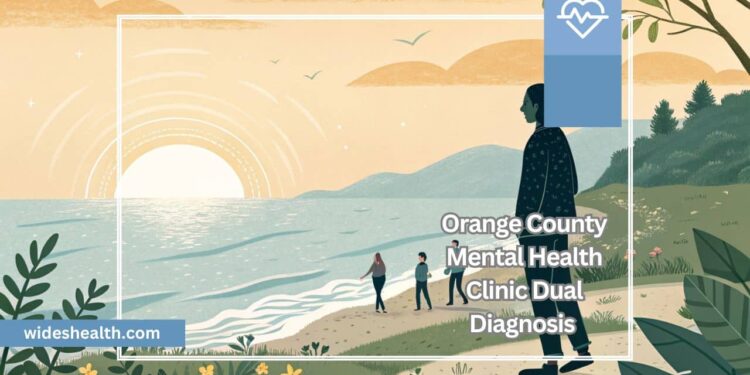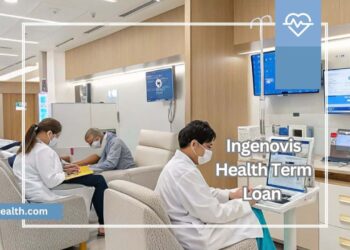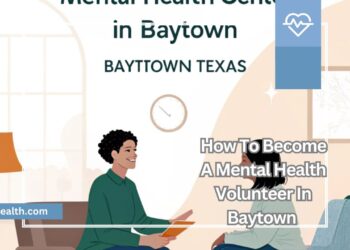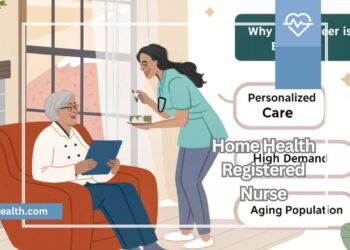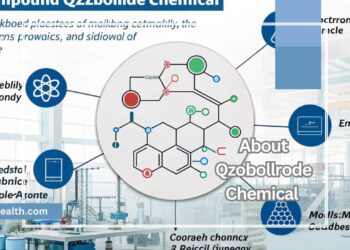I never thought I would end up in a mental health clinic in Orange County. If you had asked me a few years ago, I would have said that therapy was for “other people.” People with real problems. I thought I was just dealing with a little stress, maybe drinking a little too much to cope. But when I hit rock bottom, I realized that my drinking wasn’t just a bad habit—it was my way of self-medicating for an underlying mental illness I had ignored for years.
I was diagnosed with a dual diagnosis, meaning I had both a mental health disorder and a substance use disorder. That was when I found a mental health clinic in Orange County specializing in dual diagnosis treatment, and it changed my life.
In this article, I want to share my experience—what it was like to seek help, what I learned during treatment, and how my life has changed. If you or someone you love is struggling with mental health and addiction, know that recovery is possible. You just need the right support.
Understanding Dual Diagnosis: More Common Than You Think!
When I first heard the term dual diagnosis, I had no idea what it meant. But as I sat in my intake appointment at the clinic, a therapist explained it to me:
“Dual diagnosis means you have both a mental health disorder and a substance use disorder. These two conditions feed off each other, making both harder to treat if you don’t address them together.”
It suddenly made sense. For years, I had struggled with severe anxiety and depression, but instead of getting help, I turned to alcohol. At first, drinking calmed my nerves and made me feel “normal,” but over time, it became a crutch. I was drinking just to get through the day. The more
I drank, the worse my anxiety became. It was a vicious cycle.
According to the National Institute on Drug Abuse, about 50% of people with a mental health disorder also struggle with substance abuse. Millions of people are dealing with this, yet so few seek the right treatment.
Why Dual Diagnosis Treatment is Essential?
Treating dual diagnosis is not as simple as addressing one condition at a time. Mental health disorders and substance abuse are often intertwined, with one exacerbating the other. For instance, someone with anxiety might turn to alcohol to self-medicate, only to find their anxiety worsens over time.
In Orange County, mental health clinics specializing in dual diagnosis understand the importance of integrated treatment. By addressing both conditions simultaneously, patients have a better chance of achieving long-term recovery.
Symptoms of Dual Diagnosis:
The symptoms of dual diagnosis vary widely depending on the specific mental health disorder and substance involved. However, some common signs include:
Substance Use Disorder Symptoms:
- Sudden changes in behavior
- Increased tolerance to the substance
- Withdrawal symptoms when not using
- Engaging in risky behaviors while under the influence
Mental Health Disorder Symptoms:
- Extreme mood swings
- Social withdrawal and isolation
- Difficulty concentrating or making decisions
- Suicidal thoughts or attempts
It’s important to note that some substances can mimic mental health symptoms. For example, prolonged drug use might lead to paranoia or hallucinations, which can be mistaken for schizophrenia. This is why a thorough assessment is crucial before diagnosing a mental health condition in someone with a history of substance abuse.
Risk Factors for Dual Diagnosis: What Increases the Likelihood?
Dual diagnosis, the co-occurrence of a mental health disorder and a substance use disorder (SUD) is influenced by a variety of risk factors. Understanding these factors can help individuals, families, and healthcare providers identify potential vulnerabilities and take proactive steps toward prevention and treatment. Below, we explore the key risk factors associated with both mental health disorders and substance use disorders, as well as how these factors often overlap.
Mental Health Disorder Risk Factors:
Certain factors can increase the likelihood of developing a mental health disorder, which may later contribute to a dual diagnosis. These include:
- Family History of Mental Illness: Genetics play a significant role in mental health. If a close family member has struggled with conditions like depression, anxiety, bipolar disorder, or schizophrenia, the risk of developing a similar condition increases.
- Chemical Imbalances in the Brain: Neurotransmitters like serotonin, dopamine, and norepinephrine regulate mood and behavior. Imbalances in these chemicals can lead to mental health disorders such as depression or anxiety.
- Trauma or Stressful Life Events: Experiencing trauma, such as abuse, neglect, or the loss of a loved one, can trigger mental health issues. Chronic stress from work, relationships, or financial difficulties can also contribute.
- Chronic Medical Conditions: Long-term illnesses like diabetes, cancer, or chronic pain can take a toll on mental health, leading to conditions such as depression or anxiety.
Also read: What Is Cidp Disease In Humans – Symptoms, Causes & Treatment Guide!
Substance Use Disorder Risk Factors:
Similarly, certain factors make individuals more susceptible to developing a substance use disorder, which can later contribute to a dual diagnosis. These include:
- Family History of Addiction: A genetic predisposition to addiction can make some individuals more likely to develop a substance use disorder.
- Peer Pressure or Social Environment: Being surrounded by peers who use drugs or alcohol can increase the likelihood of substance abuse, especially during adolescence or young adulthood.
- Lack of Family Support: A lack of emotional or social support from family members can lead individuals to turn to substances as a coping mechanism.
- Use of Highly Addictive Substances: Certain substances, such as opioids, methamphetamine, or cocaine, are highly addictive and can quickly lead to dependency.
The Connection Between Mental Health and Substance Use Disorders:
In many cases, mental health disorders and substance use disorders are deeply interconnected. For example:
- Mental Health Disorders Preceding Substance Abuse: Individuals with untreated mental health conditions may turn to drugs or alcohol as a form of self-medication. For instance, someone with anxiety might use alcohol to calm their nerves, while someone with depression might use stimulants to feel more energized.
- Substance Abuse Triggering Mental Health Issues: Prolonged substance use can alter brain chemistry, leading to the development of mental health disorders. For example, chronic alcohol abuse can lead to depression, while long-term use of stimulants can cause paranoia or psychosis.
Why Understanding Risk Factors Matters?
Identifying these risk factors is crucial for early intervention and prevention. By recognizing the signs and addressing underlying issues, individuals can reduce their risk of developing a dual diagnosis. For those already struggling with co-occurring disorders, understanding these factors can help tailor treatment plans to address the root causes of their conditions.
If you or someone you know is at risk for dual diagnosis, seeking help from a specialized Orange County mental health clinic can provide the support and resources needed to navigate these challenges. Early intervention and comprehensive care are key to achieving long-term recovery. This section provides a clear and structured overview of the risk factors for dual diagnosis,
Finding the Right Mental Health Clinic in Orange County:
Finding a dual diagnosis treatment center in Orange County wasn’t easy. I had no idea where to start. I searched online for “Orange County mental health clinic dual diagnosis,” and found multiple options. I called a few places, but some didn’t take my insurance, and others had long waitlists.
some research, I found a clinic that offered integrated treatment, meaning they addressed both my addiction and my mental health at the same time. This was crucial because I knew that if I only treated one problem, the other would just bring me down again.
Also read: Creekview Health And Rehab – A Place Of Healing And Comfort!
The First Step: Detoxing and Facing My Fears!
When I walked into the clinic for my first appointment, I was terrified. I didn’t want to admit I needed help. However, my therapist reassured me that asking for help isn’t a weakness. It’s strength. You’re here, and that’s what matters. The first step was detox. I needed to stop drinking before I could work on my mental health.
The clinic provided medically supervised detox, which made the process safer and more manageable. I won’t lie—withdrawal was rough. I experienced anxiety, nausea, and even hallucinations. But the doctors and nurses supported me every step of the way. Once my body was free from alcohol, we started the real work: therapy.
How Dual Diagnosis Treatment Works in Orange County?
Orange County mental health clinics take a holistic and integrated approach to dual diagnosis treatment. This ensures both mental health and substance use disorders are addressed simultaneously for effective recovery. Below is a detailed breakdown of the treatment process:
Detoxification:
The first step is medically supervised detoxification, where patients safely withdraw from drugs or alcohol. This process ensures the body is free from substances, preparing individuals for the next phase of treatment. Detox is closely monitored by medical professionals to manage withdrawal symptoms and ensure safety.
Comprehensive Assessment:
After detox, patients undergo a thorough evaluation to identify both mental health and substance use disorders. This assessment includes psychological testing, medical history reviews, and interviews. The goal is to create a personalized treatment plan tailored to the individual’s unique needs and challenges.
Integrated Treatment:
Dual diagnosis treatment involves addressing both conditions simultaneously through a combination of therapies:
- Psychotherapy: Also known as talk therapy, it helps patients explore the root causes of their conditions and develop coping strategies.
- Cognitive Behavioral Therapy (CBT): This evidence-based therapy helps individuals identify and change harmful thought patterns and behaviors.
- Medication Management: Medications may be prescribed to manage mental health symptoms or support substance abuse recovery.
Ongoing Support:
Recovery is a long-term process, and Orange County clinics provide aftercare programs to ensure sustained progress. These include support groups, relapse prevention strategies, and continued therapy sessions. Ongoing support helps patients maintain sobriety and mental stability while transitioning back to everyday life.
Therapies Used in Dual Diagnosis Treatment:
Orange County clinics utilize evidence-based therapies to treat dual diagnosis effectively. Here are some of the most commonly used approaches:
Cognitive Behavioral Therapy (CBT):
CBT helped me understand the negative thought patterns that kept me trapped in addiction and anxiety. My therapist taught me that my thoughts weren’t always true. Just because I felt like a failure didn’t mean I was one.
Dialectical Behavior Therapy (DBT):
DBT helped me manage my emotions. I used to feel overwhelmed by my anxiety and stress, which made me turn to alcohol. But through DBT, I learned coping skills like deep breathing, mindfulness, and emotional regulation techniques.
Also read: Why Am I Getting A Package From Everly Health Solutions – Find Out Now!
Eye Movement Desensitization and Reprocessing (EMDR):
This therapy was a game-changer for my past trauma. I had experienced things in my life that I never fully processed, and those painful memories contributed to my anxiety and addiction. EMDR helped me work through them in a safe and structured way.
Group Therapy: Finding My People!
One of the best parts of the program was group therapy. Sitting in a room with people who truly understood what I was going through was life-changing. I didn’t feel alone anymore. I met people who had been sober for months or years, and they gave me hope that I could do it too.
Medication: A Controversial but Helpful Tool!
Before starting treatment, I was against the idea of medication for mental health. I thought, “I don’t want to rely on pills to be happy.” But my psychiatrist explained that medication wasn’t about happiness—it was about balance.
Your brain has been through a lot. Medication can help stabilize your mood so you can do the real work in therapy. After some trial and error, we found the right anti-anxiety medication for me. It didn’t numb me or change my personality—it just made it easier to function so I could focus on getting better.
Benefits of Dual Diagnosis Treatment in Orange County:
Choosing a specialized dual diagnosis treatment center in Orange County offers several advantages:
- Integrated Care: Addressing both mental health and substance abuse simultaneously leads to better outcomes.
- Personalized Treatment Plans: Each patient receives a tailored approach based on their unique needs.
- Access to Experienced Professionals: Orange County clinics are staffed by psychiatrists, therapists, and counselors with expertise in dual diagnosis.
- Supportive Environment: Many clinics offer a safe and nurturing setting that promotes healing and recovery.
The Future of Dual Diagnosis Treatment in Orange County Mental Health Clinics:
The future of dual diagnosis treatment in Orange County mental health clinics is evolving toward personalized, technology-driven, and holistic care. Advanced therapies like AI-driven assessments, virtual reality therapy, and psychedelic-assisted treatments may revolutionize recovery.
Affordable access, teletherapy, and 24/7 crisis support will ensure more people get help. Long-term relapse prevention through peer mentorship and sober communities will strengthen recovery. Integrated mental health and addiction care is the future—offering hope, healing, and a path to lasting recovery.
FAQS:
1. What is dual diagnosis treatment?
Dual diagnosis treatment addresses both mental health disorders and substance use disorders simultaneously. This integrated approach ensures that both conditions are treated together, leading to better long-term recovery.
2. How do I know if I need dual diagnosis treatment?
If you struggle with both addiction and mental health issues such as depression, anxiety, PTSD, or bipolar disorder, you may need dual diagnosis treatment. Common signs include self-medicating with drugs or alcohol, mood swings, social withdrawal, and difficulty functioning daily.
3. What therapies are used in dual diagnosis treatment?
Clinics use evidence-based therapies like Cognitive Behavioral Therapy (CBT), Dialectical Behavior Therapy (DBT), Eye Movement Desensitization and Reprocessing (EMDR), and medication management. Many also offer holistic treatments like mindfulness, yoga, and art therapy.
4. Can I get dual diagnosis treatment if I don’t have insurance?
Yes! Many Orange County mental health clinics offer sliding-scale fees, financial aid, or government-funded programs. Some also provide free consultations to help you find an affordable option.
5. What happens after completing dual diagnosis treatment?
Recovery is a lifelong journey. Most clinics offer aftercare programs, relapse prevention plans, sober living communities, and peer support groups to help patients maintain sobriety and mental wellness after treatment.
Conclusion:
Seeking help for dual diagnosis at an Orange County mental health clinic changed my life in ways I never imagined. I learned that treating both mental health disorders and substance abuse together is essential for lasting recovery. With therapy, medication, and ongoing support, I gained the tools to rebuild my life.
If you or a loved one is struggling, don’t wait—recovery is possible with the right care and commitment. The journey isn’t easy, but a healthier, happier future is within reach. Every step toward healing matters, and with the right support, transformation is possible. You are stronger than your struggles, and hope is always within reach.

